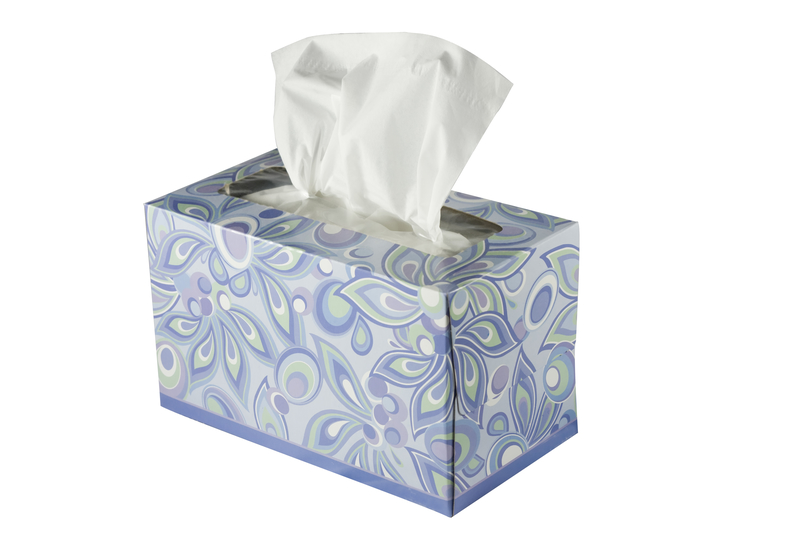Product Liability – Consumer Products – Italy: The Manufacturer is Responsible if the Tissue Contains Nickel and the Consumer is Not Adequately Informed

The below post is written by guest author Elena Bassan, an attorney with the Italian law firm Studio Bassan.
Today, we comment on a ruling of the Supreme Court of Cassazione (no. 3692 of 15 February 2018) concerning a product reported to be allegedly defective due to its content of heavy metals (nickel).
The case at a glance
A lady wipes her face, neck and forearms from sweat with a paper tissue, but this causes her a violent skin rash, with consequent allergic dermatitis that lasts for over three months.
The reaction is attributed to metal allergy and the subsequent analyses find that the tissue contains nickel, a powerful allergen, a circumstance which had not been disclosed by the manufacturer through an appropriate warning printed on the product label.
In the light of the above, the Court of Cassazione (1) judged the product to be defective and (2) confirmed the previous ruling of the Court of Appeal, which had sentenced the manufacturer to compensate the damage suffered by the consumer.
What does the Consumer Code say
The Consumer Code (Legislative Decree no. 206/2005) provides that the products or packaging of products intended for consumers must bear, clearly visible and legible, the warning relating to the possible presence of materials or substances that may cause harm to human being, things or the environment (Article 6).
Article 117 of the Code clarifies that a product is defective when it does not offer the safety that one may legitimately expect considered all the circumstances, including:
* the reasonably intended use of the product and the behaviors that may be reasonably foreseen in relation to it;
* the manner in which the product was put into circulation, its presentation, its obvious characteristics, the instructions and the warnings provided.
When a product may be considered defective?
A product cannot be considered defective simply because it contains, in an absolute sense, certain substances; if this were not the case, innumerable products - even if manufactured in compliance with all applicable regulations and regularly marketed - could, at least potentially, be deemed to be defective.
Rather, the manufacturer must give to the consumer – who, as it happens more frequently today, could suffer of a particular sensitiveness to certain substances – a clear, precise and complete information on all the important features concerning the product’s contents, origins and use and warn the consumer of the possible presence of a substance (or of methods of use) which may turn out to be problematic or risky.
What did the Court expert say?
The expert appointed by the Court ascertained that the nickel contained in the tissues concerned - even though it exceeded the limit allowed for packaging in contact with foodstuff and cosmetics - was in compliance with UE legislation concerning textiles and nickel’s use and commercialization.
Also, the use made of this product was not to be deemed abnormal: it was an absolutely ordinary use, made by a consumer to wipe her face, hands and arms.
An anomalous presence
However, the Court of Cassazione deemed that the nickel content of these tissues was anomalous and not corresponding to the paradigm referred to in Art. 117 of the Consumer Code, especially considering that:
- nickel is a metal known as a contact sensitizer and as a cause of allergies
- this substance was contained in a paper tissue, a product which by its nature is intended for contact with the skin and mucous membranes of users, and therefore
- the latter was "definitely suitable to cause damage".
To sum up
On the base of the above and of the fact that the manufacturer did not provide to the consumer, either on the product label or on its package, the minimum information required by law on the presence of metals - “warnings aimed at informing potentially allergic subjects of the risk, particularly serious in relation to the type of product and its normal intended use” - the product was judged to be defective.
Manufacturers must therefore pay special attention – apart from the intrinsic characteristics of the product - to the completeness of the information given to the consumer on the product itself, so as to avoid strict interpretations of the legislation at issue.
Corte di Cassazione, Sect. III, no. 3692 of 15 February 2018
Find the Italian version of the post and the text of the ruling here.
Avv. Elena Bassan is available for assistance and further clarifications on this matter, medical/healthcare liability, and commercial matters in Italy. Please contact her at e.bassan@studiobassan.net.
